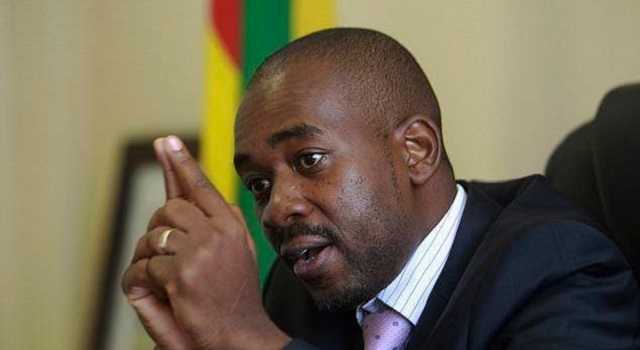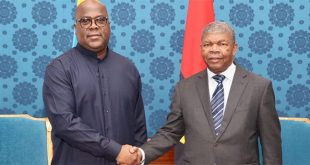
Harare, Zimbabwe | AFP | Zimbabwe’s main opposition leader Nelson Chamisa on Saturday vowed to continue his push to take power after disputed elections in which he lost to President Emmerson Mnangagwa in July.
“We want to claim the victory of the people. We must lead this country. We won the election on 30 July but they were stolen,” said Chamisa in a speech to thousands of his Movement of Democratic Change (MDC) supporters in the capital Harare.
“Mnangagwa we don’t acknowledge him because he didn’t win the elections,” he said.
The MDC’s 19th anniversary rally which was banned several times by police citing a cholera outbreak which killed at least 50 people was given the go-ahead this week.
Chamisa, 40, has called for a transitional government to resolve the worsening economic and political crisis engulfing the country.
“Because we have not resolved the political issues our economy cannot perform. The economy is in a shambles,” he said.
“The economy is a reflection of politics that is not in proper shape. We have solutions to the economic crisis,” he added.
Thousands of MDC supporters sang and danced to music as Chamisa lit a “democratic flame” and released 19 doves calling for “peace in Zimbabwe”.
And he vowed to organise protests to contest Mnangagwa’s presidency.
“We are planning the day or days, we will not do violence…,” he said without elaborating.
Party supporters and senior officials addressed Chamisa as the “real president of Zimbabwe.”
Chamisa also dismissed a commission of inquiry led by former South African President Kgalema Motlanthe appointed by Mnangagwa to investigate the death of six people after soldiers opened fire on protestors who accused officials of delaying election results.
“It is a waste of time, it is a shame. Motlanthe runs the risk of losing all credibility,” he said. “We will not accept any outcome of the commission if it does not agree that the people who committed the crime are the people in government.”
Zimbabwe has been facing foreign currency shortages in recent weeks that have sparked an economic crisis with supplies of fuel, food and pharmaceuticals drying up.
 The Independent Uganda: You get the Truth we Pay the Price
The Independent Uganda: You get the Truth we Pay the Price


